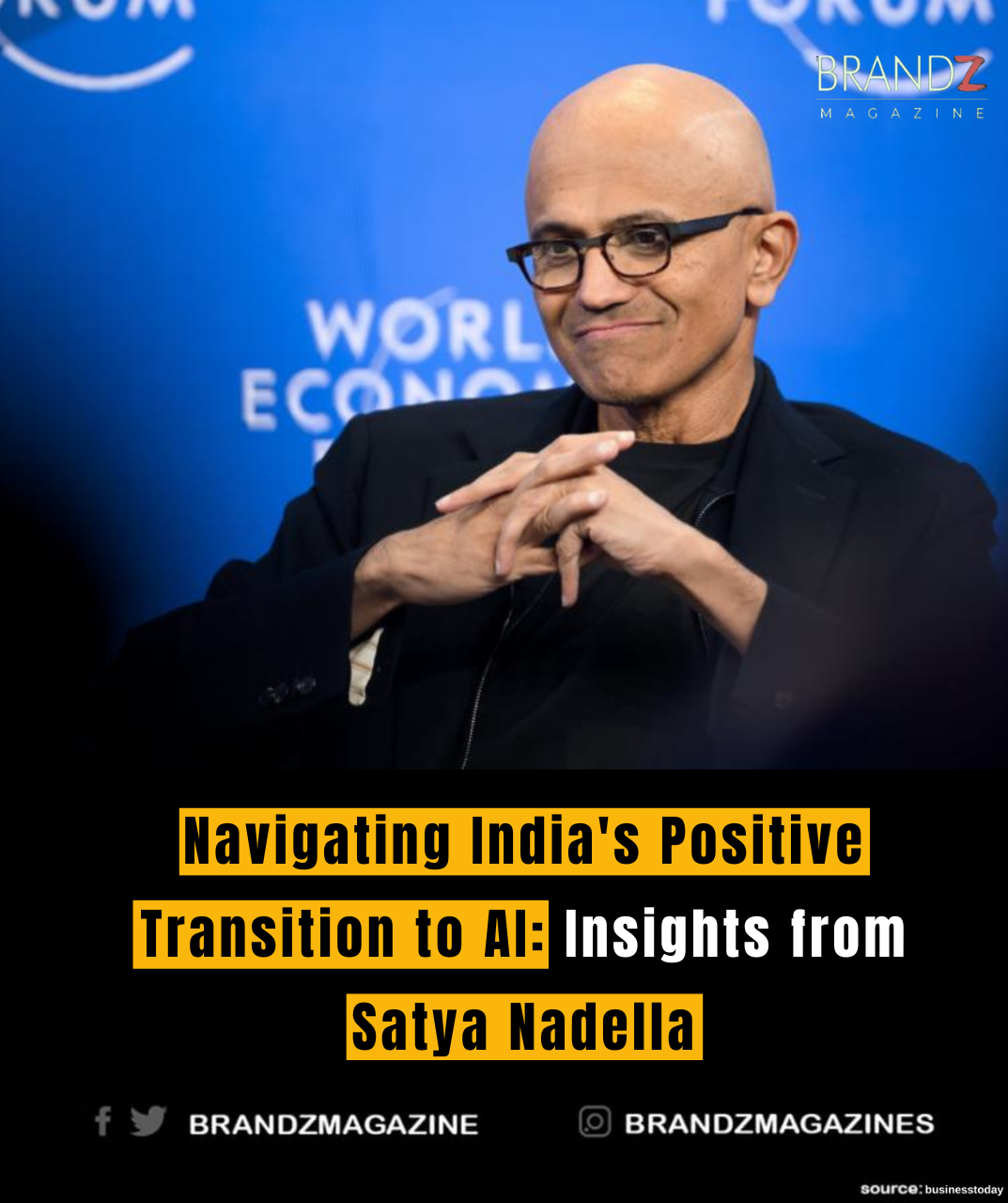
In recent years, the integration of artificial intelligence (AI) into various sectors has accelerated, promising transformative impacts on economies worldwide. India, with its burgeoning tech industry and vast talent pool, stands at the forefront of this AI revolution. Microsoft CEO Satya Nadella’s recent remarks underscore India’s preparedness to harness the potential of AI for positive societal and economic outcomes. By leveraging existing tools and implementing conducive policies, India can navigate this transition effectively, unlocking new opportunities for innovation, growth, and inclusive development.
Satya Nadella’s assertion highlights India’s capacity to embrace AI as a catalyst for progress rather than a disruptive force. With a robust foundation in technology and a thriving startup ecosystem, India possesses the requisite tools to drive AI-driven innovation across sectors such as healthcare, agriculture, education, and manufacturing. Nadella’s optimism reflects confidence in India’s ability to leverage its human capital and technological prowess to shape a future where AI enhances productivity, efficiency, and quality of life.
Central to India’s positive transition to AI is the formulation of forward-thinking policies that foster innovation while ensuring ethical and responsible AI deployment. Nadella’s remarks underscore the importance of regulatory frameworks that balance innovation with privacy, security, and accountability. By proactively addressing concerns related to data governance, cybersecurity, and algorithmic bias, India can create an enabling environment conducive to AI-driven innovation while safeguarding against potential risks and unintended consequences.
Furthermore, Nadella’s emphasis on the democratization of AI underscores the importance of inclusive access to technology and digital skills training. India’s diverse population presents both opportunities and challenges in this regard. Initiatives aimed at bridging the digital divide, upskilling the workforce, and promoting digital literacy are essential to ensure that AI benefits reach all segments of society. By investing in education, training, and infrastructure, India can empower individuals and communities to participate actively in the AI-driven economy, thereby fostering inclusive growth and social equity.
Moreover, Nadella’s recognition of India’s entrepreneurial spirit highlights the role of startups and small businesses as engines of innovation and economic growth. India’s vibrant startup ecosystem, coupled with supportive policies and access to capital, creates a fertile ground for AI-driven entrepreneurship. By providing incentives for startups to develop AI-based solutions that address pressing societal challenges, India can catalyze innovation, create jobs, and drive economic competitiveness on the global stage.
Collaboration between the public and private sectors is key to realizing India’s AI ambitions. Nadella’s advocacy for public-private partnerships underscores the need for concerted efforts to leverage AI for social good. By fostering collaboration between government, industry, academia, and civil society, India can harness the collective expertise, resources, and insights needed to tackle complex challenges and maximize the benefits of AI for all stakeholders.

